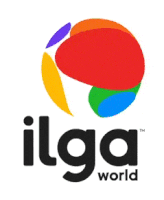
The International Lesbian, Gay, Bisexual, Trans and Intersex Association (ILGA) is an organization who is committed to advancing human rights to all people, disregarding gender identity, sex characteristics and expression. ILGA participates in a multitude of agendas within the United Nations, such as creating visibility for LGBTI issues by conducting advocacy and outreach at the Human Rights Council, working with members to help their government improve LGBTI rights, ensuring LGBTI members are not forgotten in international law, and advocating for LBTI women’s issues at the Commission on the Status of Women.

Lesbian, gay, bisexual, and transgender (LGBT) persons in Serbia may face legal challenges not experienced by non-LGBT residents. Both male and female same-sex sexual activity are legal in Serbia, and discrimination on the basis of sexual orientation in areas such as employment, education, media, and the provision of goods and services, amongst others, is banned. Nevertheless, households headed by same-sex couples are not eligible for the same legal protections available to opposite-sex couples.
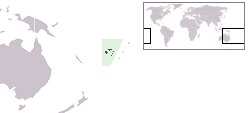
Lesbian, gay, bisexual and transgender (LGBT) people in Fiji may face legal challenges not experienced by non-LGBT residents. In 1997, Fiji became the second country in the world after South Africa to explicitly protect against discrimination based on sexual orientation in its Constitution. In 2009, the Constitution was abolished. The new Constitution, promulgated in September 2013, bans discrimination based on sexual orientation and gender identity or expression. However, same-sex marriage remains banned in Fiji and reports of societal discrimination and bullying are not uncommon.

Lesbian, gay, bisexual, transgender and queer (LGBTQ) persons living in Lebanon may face difficulties not experienced by non-LGBT residents, though they are considerably more free than in other parts of the Arab world. Various courts have ruled that Article 534 of the Lebanese Penal Code, which prohibits having sexual relations that "contradict the laws of nature", should not be used to arrest LGBT people. Nonetheless, the law is still being used to harass and persecute LGBT people through occasional police arrests.

Lesbian, gay, bisexual, and transgender (LGBT) persons in Cyprus may face legal challenges not experienced by non-LGBT residents. Both male and female same-sex sexual activity are legal in Cyprus since 1998, and civil unions which grant several of the rights and benefits of marriage have been legal since December 2015.
Homophobia encompasses a range of negative attitudes and feelings toward homosexuality or people who are identified or perceived as being lesbian, gay, bisexual or transgender (LGBT). It has been defined as contempt, prejudice, aversion, hatred or antipathy, may be based on irrational fear, and is also related to religious beliefs.

The Declaration of Montreal on Lesbian, Gay, Bisexual, and Transgender Human Rights is a document adopted in Montreal, Quebec, Canada, on July 29, 2006, by the International Conference on LGBT Human Rights which formed part of the first World Outgames. The Declaration outlines a number of rights and freedoms pertaining to LGBT and intersex people that it is proposed be universally guaranteed. It encompasses all aspects of human rights, from the guarantee of fundamental freedoms to the prevention of discrimination against LGBT people in healthcare, education and immigration. The Declaration also addresses various issues that impinge on the global promotion of LGBT rights and intersex human rights. Intended as a starting point in listing the demands of the international LGBT movement, it will ultimately be submitted to the United Nations.

While rights have advanced significantly since the start of the 21st century, lesbian, gay, bisexual and transgender (LGBT) people in Georgia still face legal challenges that non-LGBT people do not experience. Georgia is one of only a few countries in the former Soviet space that directly prohibits discrimination against all LGBT people in legislation, labor-related or otherwise. Since 2012, Georgian law has considered crimes committed on the grounds of one's sexual orientation or gender identity an aggravating factor in prosecution. Despite this, homosexuality is still considered a major deviation from highly traditional Orthodox Christian values prevalent in the country, where public discussions of sexuality in general tend to be viewed in a highly negative light. Consequently, homosexuals are often targets of abuse and physical violence, often actively encouraged by religious leaders.

Lesbian, gay, bisexual, and transgender (LGBT) persons in San Marino may face legal challenges not experienced by non-LGBT residents. Both male and female same-sex sexual activity are legal in San Marino, but households headed by same-sex couples are not eligible for the same legal protections available to opposite-sex couples.

Lesbian, gay, bisexual, and transgender (LGBT) persons in Algeria face legal challenges and discrimination not experienced by non-LGBT citizens. According to the International Lesbian and Gay Association's May 2008 report, both male and female same-sex sexual acts are illegal in Algeria.
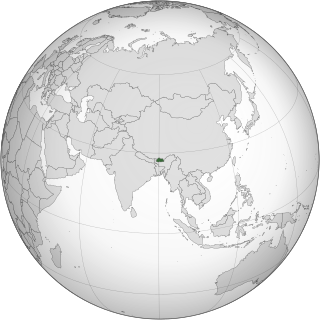
Lesbian, gay, bisexual and transgender (LGBT) people in Bhutan face legal challenges not faced by non-LGBT people. Same-sex sexual activity was decriminalised in Bhutan on 17 February 2021.

Discussions of LGBT rights at the United Nations have included resolutions and joint statements in the United Nations General Assembly and the United Nations Human Rights Council (UNHRC), attention to the expert-led human rights mechanisms, as well as by the UN Agencies.
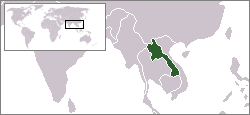
Lesbian, gay, bisexual and transgender (LGBT) rights in Laos go unreported and unnoticed. While homosexuality is legal in Laos, it is very difficult to assess the current state of acceptance and violence that LGBT people face because of government interference. Numerous claims have suggested that Laos is one of the most tolerant communist states. Despite such claims, discrimination still exists. Laos provides no anti-discrimination protections for LGBT people, nor does it prohibit hate crimes based on sexual orientation and gender identity. Households headed by same-sex couples are not eligible for any of the rights that opposite-sex married couples enjoy, as neither same-sex marriage nor civil unions are legal.

Lesbian, gay, bisexual and transgender (LGBT) people in Mongolia may face legal and social challenges not experienced by non-LGBT people, though there have been substantial improvements since the 1990s. Homosexuality was criminalised in Mongolia in 1961 through its Criminal Code. Following Mongolia's peaceful transition to a democracy in the 1990s, homosexuality was legalised and awareness about LGBT people has become more prevalent. Hate crimes on the basis of sexual orientation and gender identity result in additional legal penalties and hate speech based on these two categories has been outlawed in the country since 1 July 2017. Households headed by same-sex couples are, however, not eligible for the same legal protections available to opposite-sex couples.
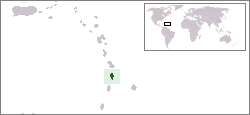
Lesbian, gay, bisexual, and transgender (LGBT) people living in Saint Lucia face legal challenges not experienced by non-LGBT members of the population. Same-sex sexual activity is illegal for males, though the law is not enforced.

The Russian LGBT Network is a non-governmental LGBT rights organization working for the social acceptance of and protection of the rights of LGBT people in Russia. Founded in 2006, it was reformed into the first Russian inter-regional LGBT rights organization on October 19, 2008. The organization is a member of the International Lesbian and Gay Association (ILGA) and is led by Russian LGBT rights activist Igor Kochetkov.
Transgender Europe (TGEU) is a network of different organisations working to combat discrimination against trans people and support trans people rights. It was founded in 2005 in Vienna during the 1st European Transgender Council as "European Transgender Network" and it is currently a registered NGO as "Transgender Europe".

Initiative Against Homophobia (HOKI) was established in 2007 as the first LGBTQ organisation in Northern Cyprus aimed to deal with criminal law amendments of TRNC which criminalises same-sex relationships. They seek equal human rights including to "fully decriminalize homosexuality, equalize the age of consent and better protect LGBTQ people under the law.”

Equal Ground is a non-profit organization based in Colombo, Sri Lanka, that advocates for political and social rights for lesbian, gay, bisexual, transgender (LGBT), intersex and queer people. The organization, established in 2004, claims to be the first organization in Sri Lanka that welcomes people of all sexual orientations and gender identities... The organization was founded by Sri Lankan gay rights activist Rosanna Flamer-Caldera and offers trilingual publications and services. It aims to achieve its goals through political activism, education, personal support, building awareness and through organized community events. It has been working more closely with lesbian, bisexual and transgender women in areas of human rights, law reform, sexual health, and violence based on sexual orientation and gender identity. The organization continues to face many challenges working in Sri Lanka where homosexuality is stigmatized and considered criminal offense that can earn up to ten years of prison under the law. Efforts of the LGBT activists to undo the British colonial law criminalizing sodomy was not repealed, but the law was expanded to include women and the penalty was worsened. Queer groups in Sri Lanka have frequently stated that some of their members have been subjected to harassment—by blackmail or by threats with exposition or arrest—by police and other people, using the legal provision.

Lesbian, gay, bisexual, and transgender (LGBT) persons in Anguilla face legal challenges not experienced by non-LGBT residents. Same-sex sexual activity is legal in Anguilla, but same-sex couples cannot marry or obtain civil partnerships. Anguillian law does not forbid discrimination based on sexual orientation or gender identity.





















